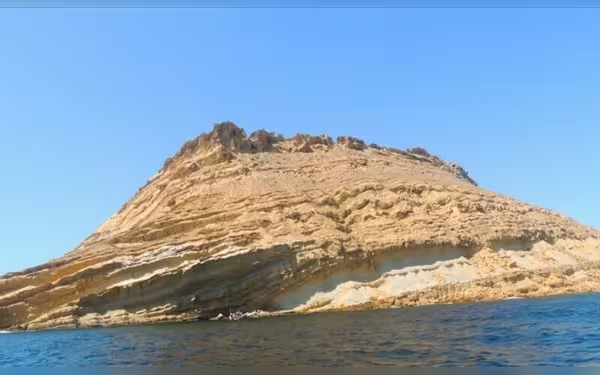Saturday, November 16, 2024 07:23 PM
Churna Island Biodiversity Under Threat in Pakistan
- Churna Island designated as marine protected area.
- Industrial activities and illegal fishing threaten biodiversity.
- Urgent action needed to preserve marine life.
 Image Credits: dawn.com
Image Credits: dawn.comChurna Island, Pakistan's marine biodiversity hotspot, faces threats from industrial activities and illegal fishing, necessitating urgent protective measures.
Churna Island, a small yet significant piece of land located off the coast of Pakistan, has recently been recognized as the country’s second-ever marine protected area. This designation, made in early September, aims to safeguard the island’s unique biodiversity, which is currently facing severe threats. The island is home to a variety of marine life, including vibrant coral reefs and numerous fish species, making it a vital ecosystem that needs protection.
However, the situation is alarming. Experts are raising red flags about the increasing industrial activities surrounding Churna Island. These activities not only disrupt the natural habitat but also contribute to marine pollution, which poses a significant risk to the delicate balance of life in the waters. Additionally, illegal fishing practices are further endangering the biodiversity of the area. Fishermen often use harmful methods that not only catch fish but also destroy coral reefs and other marine organisms.
The local community and environmentalists are calling for immediate action to address these issues. They emphasize the importance of enforcing stricter regulations to protect the island’s marine life. Without proper measures, the unique biodiversity that Churna Island offers could be lost forever. It is crucial for both the government and the public to recognize the value of this natural treasure and work together to ensure its preservation.
Churna Island stands as a testament to Pakistan’s rich marine biodiversity, but it is under threat from human activities. Protecting this island is not just about saving a piece of land; it is about preserving a vital ecosystem that supports countless species and contributes to the health of our planet. As stewards of the environment, it is our responsibility to advocate for the protection of such irreplaceable natural resources. The time to act is now, before it is too late.













